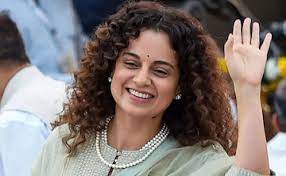Monitoring Desk
MUMBAI: The Twitter account of Bollywood actress Kangana Ranaut has been reinstated after a two-year ban for violating policies on hateful conduct and abusive behavior.
Ranaut joined thousands of other previously banned accounts – including that of former US president Donald Trump – reactivated after Tesla boss Elon Musk bought the social media giant in October for $44 billion.
“Hello everyone, it’s nice to be back here,” Ranaut tweeted on Tuesday before writing a Twitter thread slamming India’s film industry as “crass” and obsessed with money.
Ranaut, the award-winning star of 2014’s “Queen” and 2015’s “Tanu Weds Manu Returns,” had attracted controversy over her outspoken social media presence and frequent spats with fellow actors and filmmakers.
She is also an ardent supporter of Hindu nationalist Prime Minister Narendra Modi and was kicked off Twitter in May 2021 for treating his political opponent Mamata Banerjee as a “monster”.
The 35-year-old actress urged the prime minister to become a “super gundai” (super thug) in his fight against her.
Modi’s ruling Bharatiya Janata Party had recently suffered an electoral drubbing at the hands of Banerjee in West Bengal state.
Ranaut had also attacked pop superstar Rihanna for tweeting about mass protests by farmers in India, calling the singer “a fool” and the farmers “terrorists” for opposing new agriculture laws.
Twitter’s reinstatement of Ranaut came as Twitter and other social media platforms were under fire for obeying a government order to block links to a BBC documentary about Modi’s role during deadly 2002 sectarian riots.
Activists especially criticized the takedown by Twitter since Musk has described himself as a free speech “absolutist” and accused the platform’s previous ownership of bending to US government demands on content matters.
According to the Guardian, links to the documentary on about 50 Twitter accounts were removed as well as on an unspecified number of YouTube channels.
“This use of an emergency law as a censorship mechanism is a very worrying development but it’s far from the first time this has happened (in India),” Prateek Waghre, of the Internet Freedom Foundation told the Guardian.







